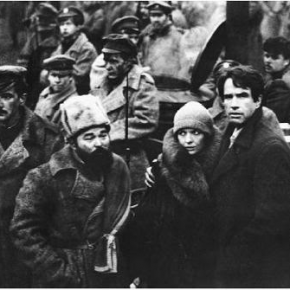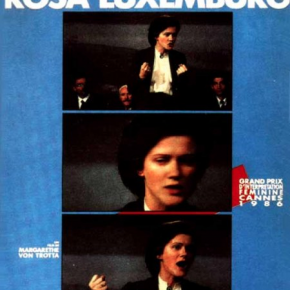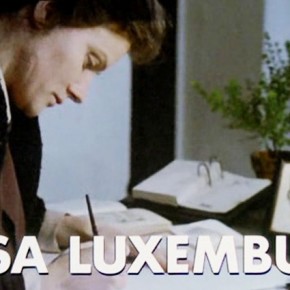Video of Platypus panels at the Left Forum can be found on Vimeo on the Platypus channel.
March 16-18 at Pace University
Session 1 W402 Finance Capital and Occupy: Marxist Perspectives Sat 10:00am
Session 3 W623 Impossible Occupations: Marxism and Psychoanalysis Sat 03:00pm
Session 3 W605 The Significance of Art in the Occupy Movement Sat 03:00pm
Session 3 W617 Arab Spring into Winter? Challenges to the Left one year on Sat 03:00pm
Session 5 E308 2011, 1999, 1968 -- and 2012? The history of the Left and #Occupy Sun 10:00am
Session 5 E329 Technology, Un/Employment, and the Left: From Future Shock to OWS Sun 10:00am
Session 5 E326 The Environmentalism of Occupy Sun 10:00am
Session 7 E320 Third Parties and the Left: Problems and Prospects Sun 03:00pm
Drop by the Platypus table!
PROMETHEUS IN DRIFT
an evening of modernist readings, featuring:
G o e t h e | H ö l d e r l i n | R e n a r d | K l e i s t | W a l s e r | V a l e r y | B e c k e t t | K a f k a | S t e v e n s | Y e s e n i n | B a u d e l a i r e | M y a k o v s k y | C e l a n
friday, 03.02, 7pm | nyu kimmel, rm 909, 60 washington sq s
if you would like to volunteer to read one of the selections or have any questions about the event, please contact nyu@platypus1917.org.
<div><strong></strong><strong>PART 1: </strong> Reds (1981)</div>
<div>
<span style="color: #333333;">
<a href="http://newyork.platypus1917.org/film-screening-series-second-international-radicals/image/" rel="attachment wp-att-1440"><img class="size-medium wp-image-1440 alignleft" title="reds" src="http://newyork.platypus1917.org/wp-content/uploads/2012/01/image-300x270.png" alt="" width="300" height="270" /></a>A radical American journalist becomes involved with the Communist revolution in Russia and hopes to bring its spirit and idealism to the United States.</span>
<h3><strong>NYU:</strong> Sunday, January 15th 1PM
NYU Sociology, Puck Building, 4th Floor
295 Lafayette St.</h3>
</div>
<hr />
<div><strong>PART 2:</strong>Rosa Luxemburg (1986)</div>
<div><a href="http://newyork.platypus1917.org/film-screening-series-second-international-radicals/rosa/" rel="attachment wp-att-1441"><img class="alignleft size-medium wp-image-1441" title="rosa" src="http://newyork.platypus1917.org/wp-content/uploads/2012/01/rosa-221x300.png" alt="" width="221" height="300" /></a>
Polish socialist and pacifist Rosa Luxemburg dreams about revolution during the era of German Wilhelminism. While Luxemburg campaigns relentlessly for her beliefs, getting repeatedly imprisoned in Germany as well as in Poland, lovers and comrades betray her until the ambitious leader is assassinated after World War I in 1919.</div>
<div></div>
<div>
<h3><strong>NYU:</strong> Sunday, January 22nd 1PM
NYU Sociology, Puck Building, 4th Floor
295 Lafayette St.</h3>
</div>
<hr />
Please join Platypus for this film screening series, a lead-in to our reading group on the "Second International Radicals," Lenin, Luxemburg, and Trotsky. At its highest peak in the early twentieth century, what were the problems and potentials of Marxism? What did the group of radicals represent in the face of the massive, international. Marxist movement of the Second International? What did they seek to achieve and how? For they are not dead and buried, as both friends and enemies have claimed. They continue to insist on the question: Can capitalism be overcome?
Contact: <a href="mailto:newyork@platypus1917.org" target="_blank">newyork@platypus1917.org</a>
Live broadcast: www.livestream.com/platypus1917
Saturday, December 17, 2011
9AM U.S./Canada PST / 10AM MST / 11AM CST / 12PM EST;
and 17:00 London / 18:00 Frankfurt and Berlin /
19:00 Thessaloniki / 22:30 Delhi / 02:00 Seoul
If you are in Chicago:
Saturday, 11am | 17 December 2011 |School of the Art Institute of Chicago, 112 S. Michigan Ave. room 919
Please join Platypus for a brief introduction to and discussion about the relevance of Lenin today, in anticipation of our Winter-Spring 2012 primary Marxist reading group, on the history of revolutionary Marxism, centered on the writings of Lenin, Luxemburg, Trotsky, and Adorno.
The Encyclopedia Britannica's entry on Lenin states that,
"If the Bolshevik Revolution is -- as some people have called it -- the most significant political event of the 20th century, then Lenin must for good or ill be considered the century's most significant political leader. Not only in the scholarly circles of the former Soviet Union, but even among many non-Communist scholars, he has been regarded as both the greatest revolutionary leader and revolutionary statesman in history, as well as the greatest revolutionary thinker since Marx."
Lenin is the most controversial figure in the history of Marxism, and perhaps one of the most controversial figures in all of history. As such, he is an impossible figure for sober consideration, without polemic. Nevertheless, it has become impossible, also, after Lenin, to consider Marxism without reference to him. Broadly, Marxism is divided into avowedly "Leninist" and "anti-Leninist" tendencies. In what ways was Lenin either an advance or a calamity for Marxism? But there is another way of approaching Lenin, which is as an expression of the historical crisis of Marxism. In other words, Lenin as a historical figure is unavoidably significant as manifesting a crisis of Marxism. The question is how Lenin provided the basis for advancing that crisis, how the polarization around Lenin could provide the basis for advancing the potential transformation of Marxism, in terms of resolving certain problems.
The Frankfurt School Critical Theorist Theodor Adorno, in his 1966 book Negative Dialectics, wrote of the degeneration of Marxism due to "dogmatization and thought-taboos." There is no other figure in the history of Marxism who has been subject to such "dogmatization and thought-taboos" as much as Lenin.
It is important to note as well that Adorno himself sought to remain, as he put it, "faithful to Marx, Engels and Lenin, while keeping up with culture at its most advanced," to which his colleague Max Horkheimer replied, simply, "Who would not subscribe to that?"
Today, such a proposition seems especially implausible, in many ways. Yet perhaps the memory of Lenin haunts us still, however obscurely.
The discussion will be broadcast live on the web. Additionally, a recording will be made available after the event.
Recommended background readings:
"1917"
http://platypus1917.org/2009/11/18/the-decline-of-the-left-in-the-20th-century-1917/
"Lenin's liberalism"
http://platypus1917.org/2011/06/01/lenin%E2%80%99s-liberalism/
"Lenin's politics"
http://platypus1917.org/2011/09/25/lenins-politics/
<em>A series of roundtable discussions hosted by The Platypus Affiliated Society.</em>
Second roundtable discussion, <a title="What is the #Occupy movement? (NYC)" href="http://www.facebook.com/event.php?eid=286469644716174" target="_blank">(fb invite)</a>
<h2><strong><span style="color: #ff0000;">Friday 7pm | December 09, 2011</span></strong>
NYU Kimmel Center (Room 905/907)
60 Washington Square S., NYC</h2>
<h3>Speakers: <strong>Hannah Appel (OWS Think Tank Working Group), Brian Dominick (Z Media Institute), David Graeber (Author, Debt: The First 5000 Years), Erik Van Deventer (NYU), Nathan Schneider (Waging Nonviolence)</strong></h3>
The recent #Occupy protests are driven by discontent with the present state of affairs: glaring economic inequality, dead-end Democratic Party politics, and, for some, the suspicion that capitalism could never produce an equitable society. These concerns are coupled with aspirations for social transformation at an international level. For many, the protests at Wall St. and elsewhere provide an avenue to raise questions the Left has long fallen silent on:
What would it mean to challenge capitalism on a <em>global scale</em>?
How could we begin to overcome social conditions that adversely affect <em>every part of life</em>?
And, how could a new international radical movement <em>address these concerns in practice</em>?
Although participants at Occupy Wall St. have managed thus far to organize resources for their own daily needs, legal services, health services, sleeping arrangements, food supplies, defense against police brutality, and a consistent media presence, these pragmatic concerns have taken precedent over long-term goals of the movement. Where can participants of this protest engage in formulating, debating, and questioning the ends of this movement? How can it affect the greater society beyond the occupied spaces?
We in the Platypus Affiliated Society ask participants and interested observers of the #Occupy movement to consider the possibility that political disagreement could lead to clarification, further development and direction. Only when we are able create an active culture of thinking and debating on the Left without it proving prematurely divisive can we begin to imagine a Leftist politics adequate to the historical possibilities of our moment. <em>We may not know what these possibilities for transformation are</em>. This is why we think it is imperative to create avenues of engagement that will support these efforts.
Towards this goal, Platypus will be hosting a series of roundtable discussions with organizers and participants of the #Occupy movement. These will start at campuses in New York and Chicago but will be moving to other North American cities, and to London, Germany, and Greece in the months to come. We welcome any and all who would like to be a part of this project of self-education and potential rebuilding of the Left to join us in advancing this critical moment.
The Platypus Affiliated Society
October 2011
<span style="color: #808080;">The Platypus Affiliated Society, established in December 2006, organizes reading groups, public fora, research and journalism focused on problems and tasks inherited from the “Old” (1920s-30s), “New” (1960s-70s) and post-political (1980s-90s) Left for the possibilities of emancipatory politics today.</span>
<a href="http://newyork.platypus1917.org" target="_blank">newyork.platypus1917.org</a> <span style="color: #808080;">|</span> <a href="http://www.platypus1917.org" target="_blank">www.platypus1917.org</a>
<a href="http://newyork.platypus1917.org/wp-content/uploads/2011/10/What-is-the-occupy-movement_.pdf"><strong>What is the #Occupy movement? PDF</strong></a>
<span style="color: #ff0000;"><a href="http://newyork.platypus1917.org/wp-content/uploads/2011/10/Occupy_lores.pdf" target="_blank"><span style="color: #ff0000;">Poster for event (11 x 17)</span></a></span>
<span style="color: #ff0000;"><a href="http://newyork.platypus1917.org/wp-content/uploads/2011/10/Program_What-is-the-Occupy-Movement.pdf" target="_blank"><span style="color: #ff0000;">Event program (8.5 x 11)</span></a></span>




